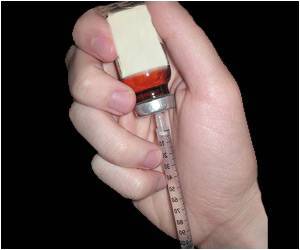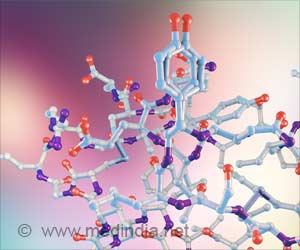UK’s drug watchdog National Institute for Clinical Excellence (NICE) has advised against public funding of Tyverb® (lapatinib) on grounds of cost.
UK’s drug watchdog National Institute for Clinical Excellence (NICE) has advised against public funding of Tyverb® (lapatinib) on grounds of cost. The drug is a treatment for an aggressive form of advanced breast cancer (ErbB2-positive). Drug makers GSK say they are considering an appeal against the decision.
Lapatinib (in combination with Xeloda® [capecitebine]) offers a new treatment option for women whose disease has returned despite treatment with standard chemotherapies and Herceptin® (trastuzumab).There are very few treatment options available for these women and lapatinib offers a chance of additional time without their disease progressing. Lapatinib is the only licensed ErbB2 targeted treatment for these patients.
Lapatinib can halve the speed of growth of breast cancer in one in five women with an aggressive form of the disease.
It could potentially help about 2,000 women a year with HER2 positive cancer who have run out of options, including the wonder drug Herceptin.
But NICE says the NHS cannot afford the cost at £1,600 a month for each patient and lapatinib, also known as Tyverb, should be used only in clinical trials.
The drug makers GlaxoSmithKline (GSK) is giving the first three months of treatment free, with the NHS picking up the bill for those who respond and need it for longer.
Advertisement
GSK proposed the patient access programme in the UK when NICE indicated early on in its review that it did not consider lapatinib to be cost effective in treating this patient population. In an effort to achieve a positive outcome for patients and greater value to the NHS, GSK bears the cost of lapatinib, for all eligible patients under the scheme, for up to the first 12 weeks of treatment. The NHS would commence payment only for the patients who continue to receive clinical benefit beyond 12 weeks. GSK will continue to honour the patient access programme for NHS trusts in the UK.
GSK submitted a sub-group analysis that met the overall survival (OS) criterion of this new NICE advice. However NICE concluded that whilst the data analysis could be useful in guiding future research, as it stands it would not change their conclusions.
NICE’s decision reflects the difficulty in demonstrating significant survival benefits in patients at this advanced stage of disease, the drug-makers said Furthermore, trials are often halted early for ethical reasons to allow patients to cross over to the active arm because of the effectiveness demonstrated by the medicine under study, as in the case of lapatinib.
In its final appraisal determination, NICE acknowledges that lapatinib is a clinically effective option, noting that lapatinib plus capecitabine demonstrated improved time to progression (TTP) and progression free survival (PFS) – significantly delaying the progression of the cancer and controlling the disease.
GSK’s NICE submission demonstrated that lapatinib, in conjunction with the patient access programme, could actually save the NHS money in patients who would have received trastuzumab (Herceptin®) containing regimens. NICE acknowledged this is the majority (>50%) of eligible patients, however NICE concluded that trastuzumab is not likely to be cost effective in this setting and therefore lapatinib plus capecitabine would not be cost effective.
Inspirational fundraiser Jane Tomlinson, who died in September 2007 aged 43, was among hundreds of British women who got the drug thanks to an 'expanded access' programme paid for by GSK.
Mrs Tomlinson lost her seven-year battle with cancer after raising more than £1.75 million for charity in gruelling endurance events, including three London Marathons.
Mrs Tomlinson's widower Mike condemned the ban when it was first proposed earlier this year, saying Nice had failed the 'acid test'.
He said 'We know what a difference it made to Jane. Initially she was refused the drug so by the time she got it, she was desperately ill but we saw the benefits and the good effects.
'Jane would be absolutely furious about this and it seems illogical. Considering the small number of women who would be eligible, it's a small price to pay.
'This drug is routinely used in other European countries. Have they got it wrong or do they have better healthcare than us?'
Dr Alison Jones, medical oncologist at the University College London Hospital and the Royal Free Hospital, said 'I am disappointed for all the women who would have benefited from lapatinib on the NHS.
'I have witnessed myself that lapatinib can extend the lives of these women. We are now left with very few effective treatment options in cases where Herceptin has stopped working.'
The decision from NICE is the final stage of its consultation process and, subject to appeal, guidance will be issued later this year.
style="mso-special-character: line-break">
Source-Medindia
GPL












